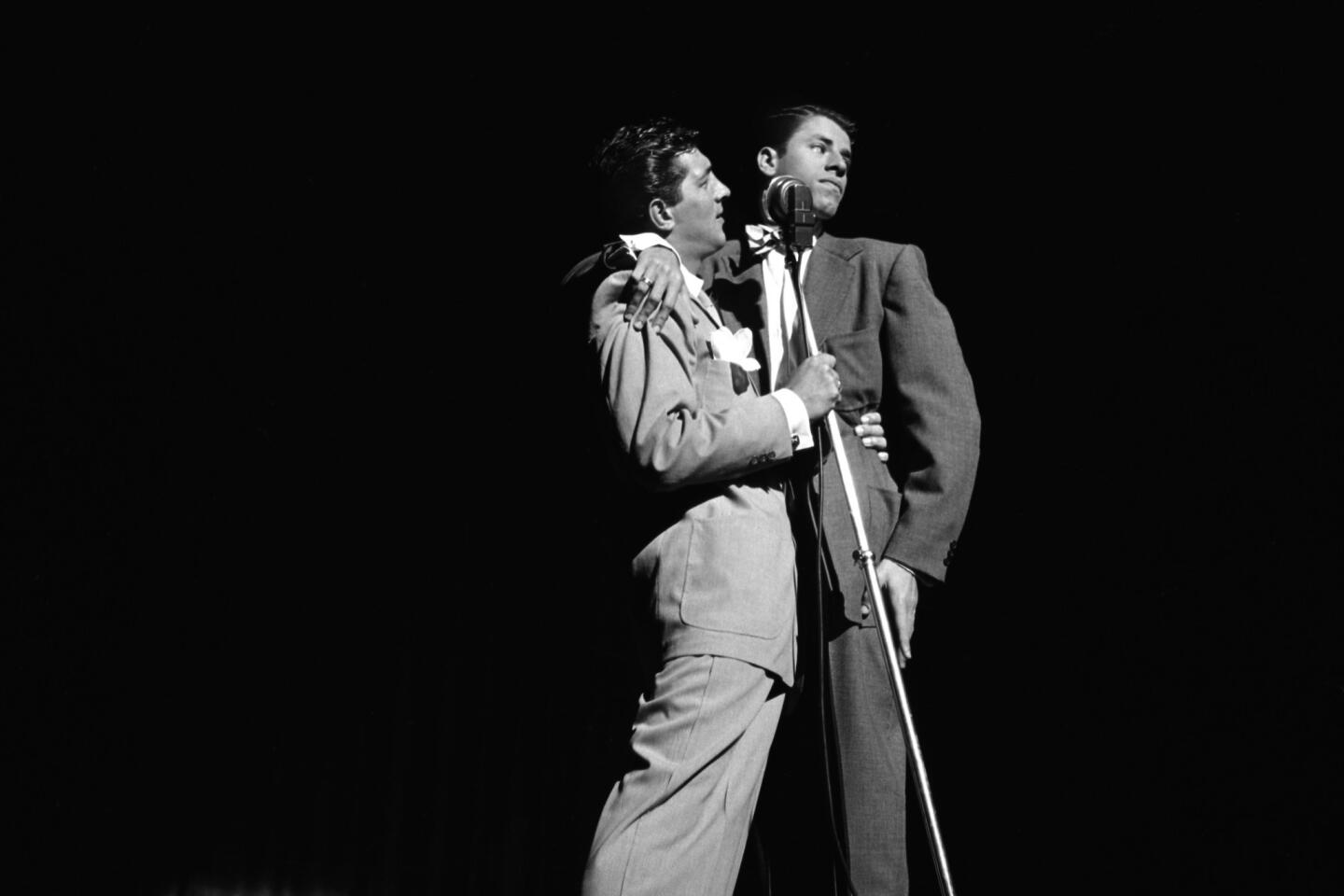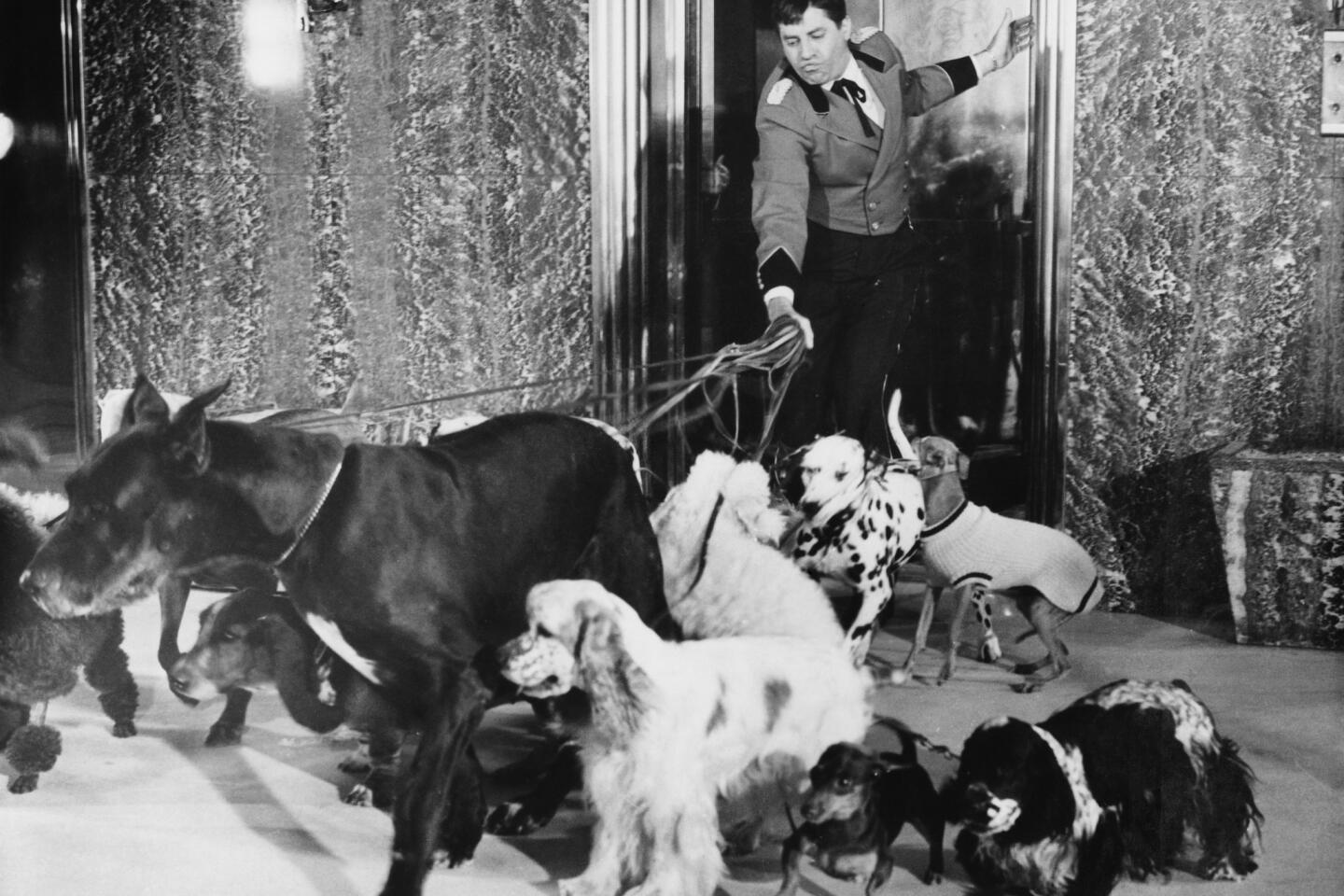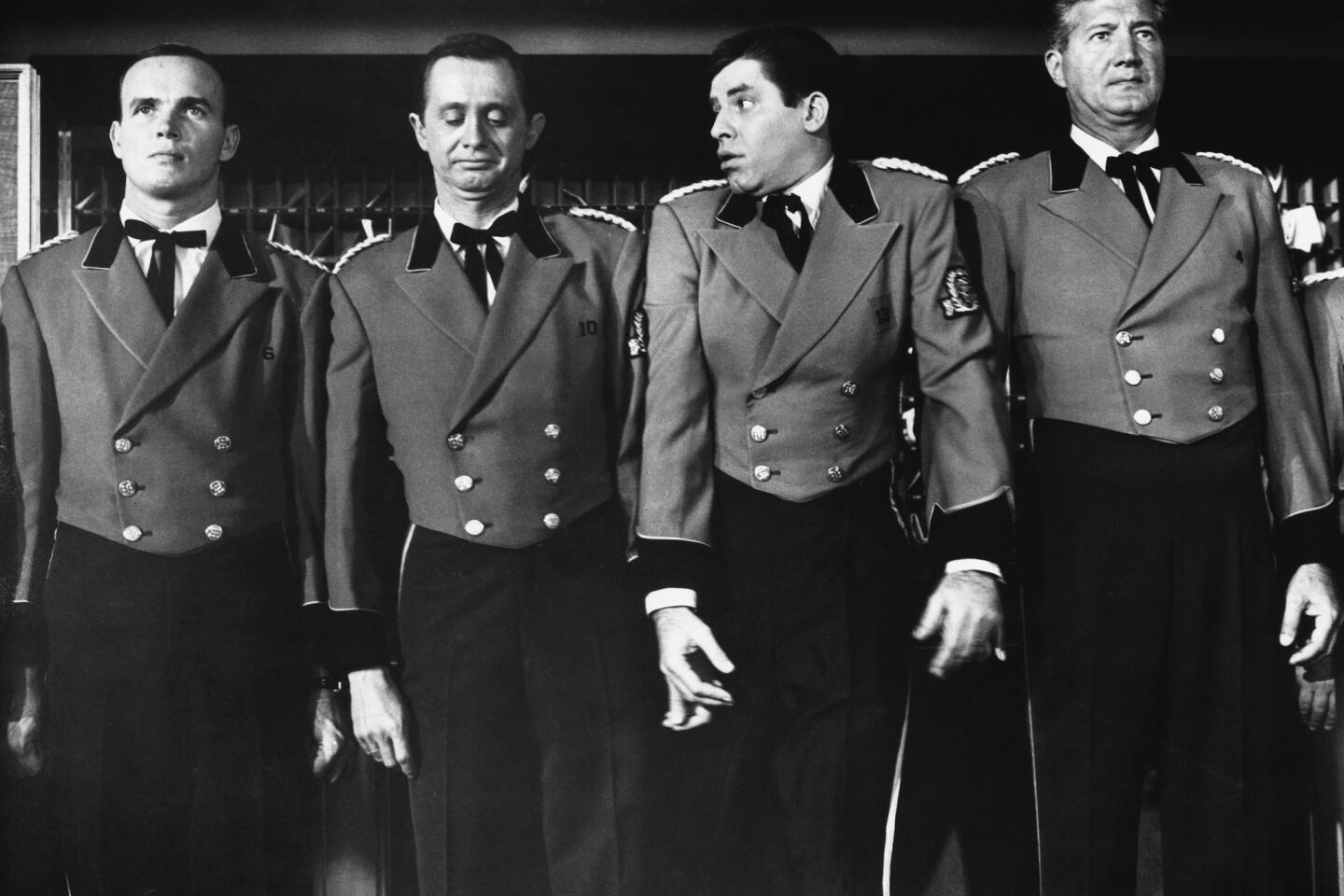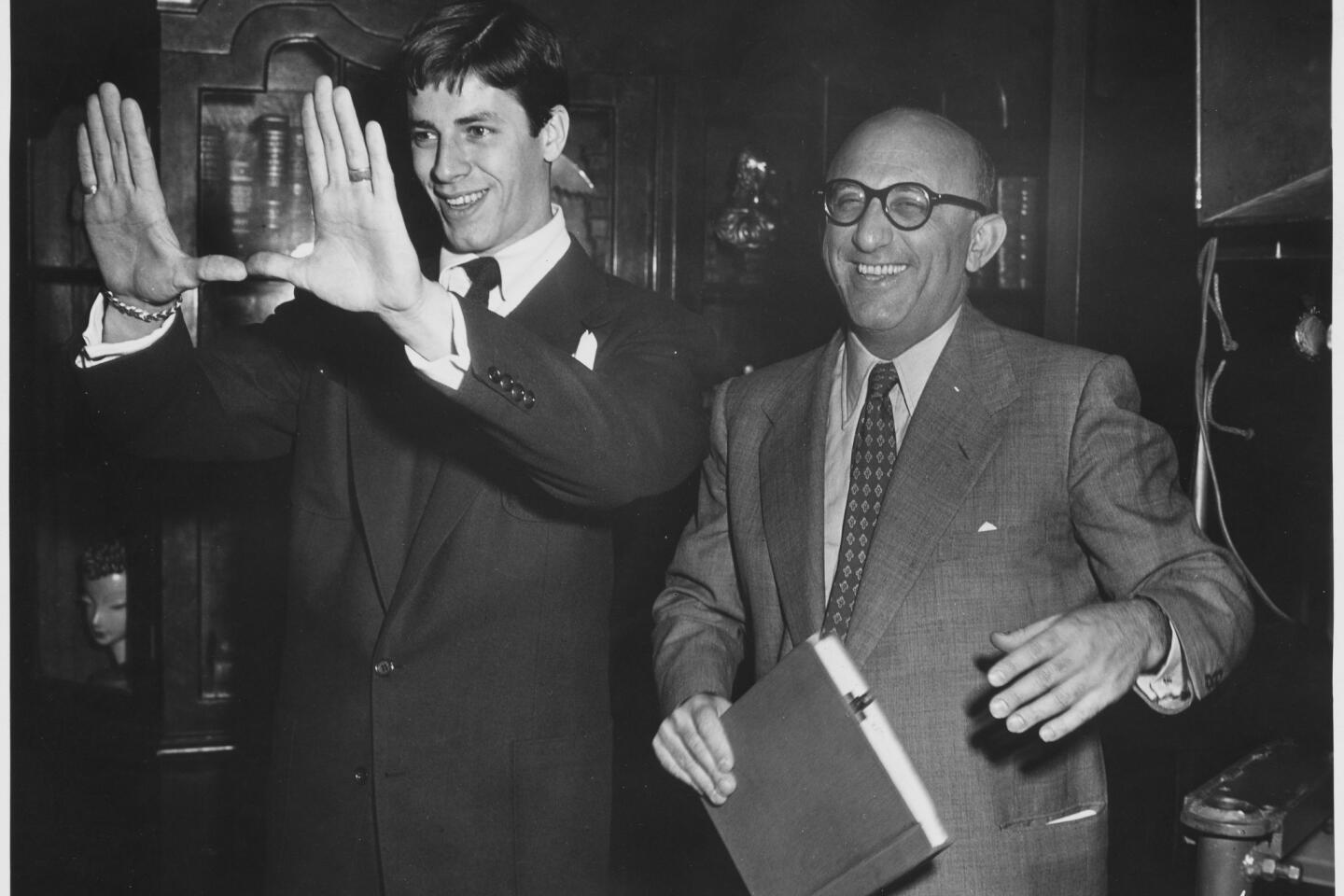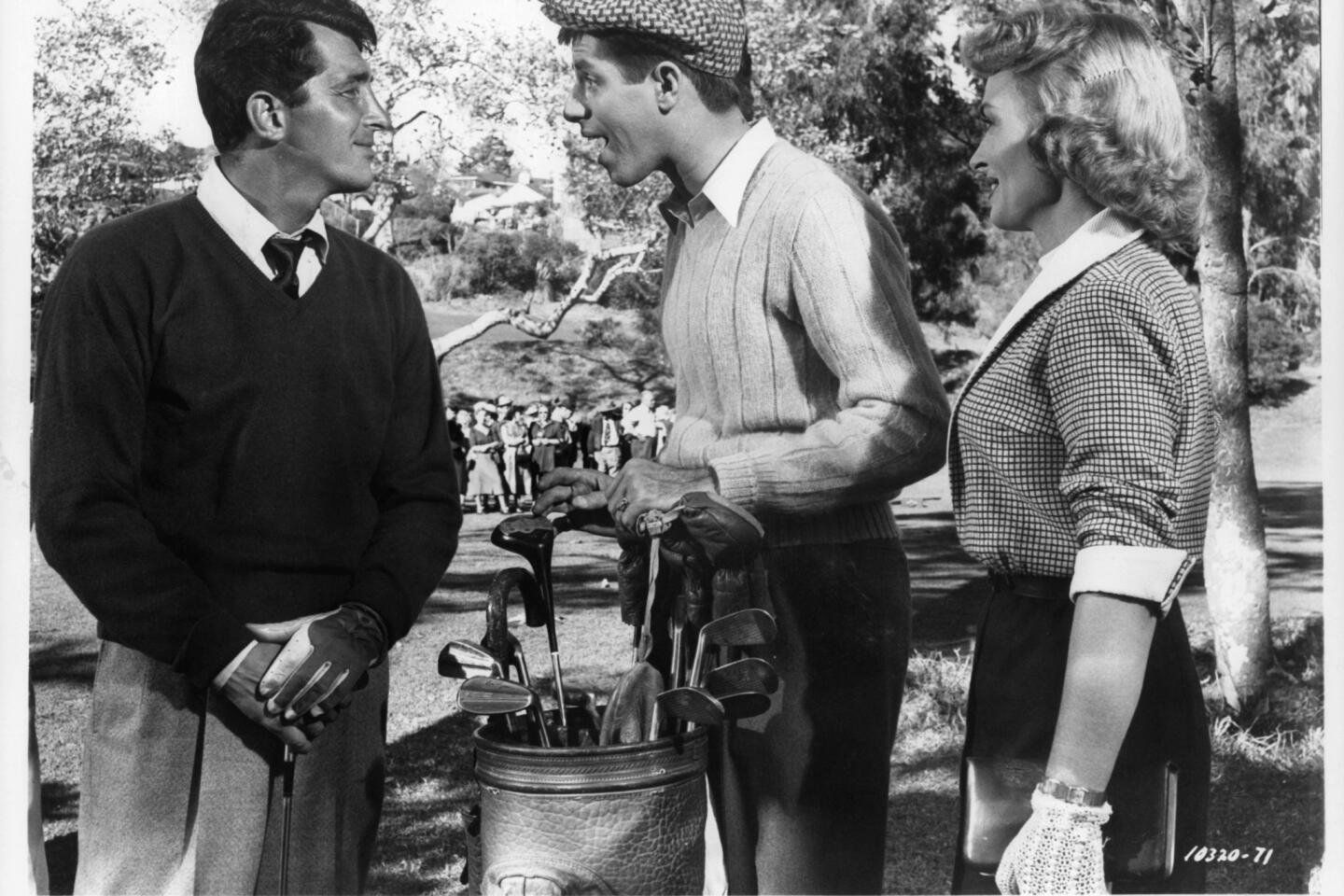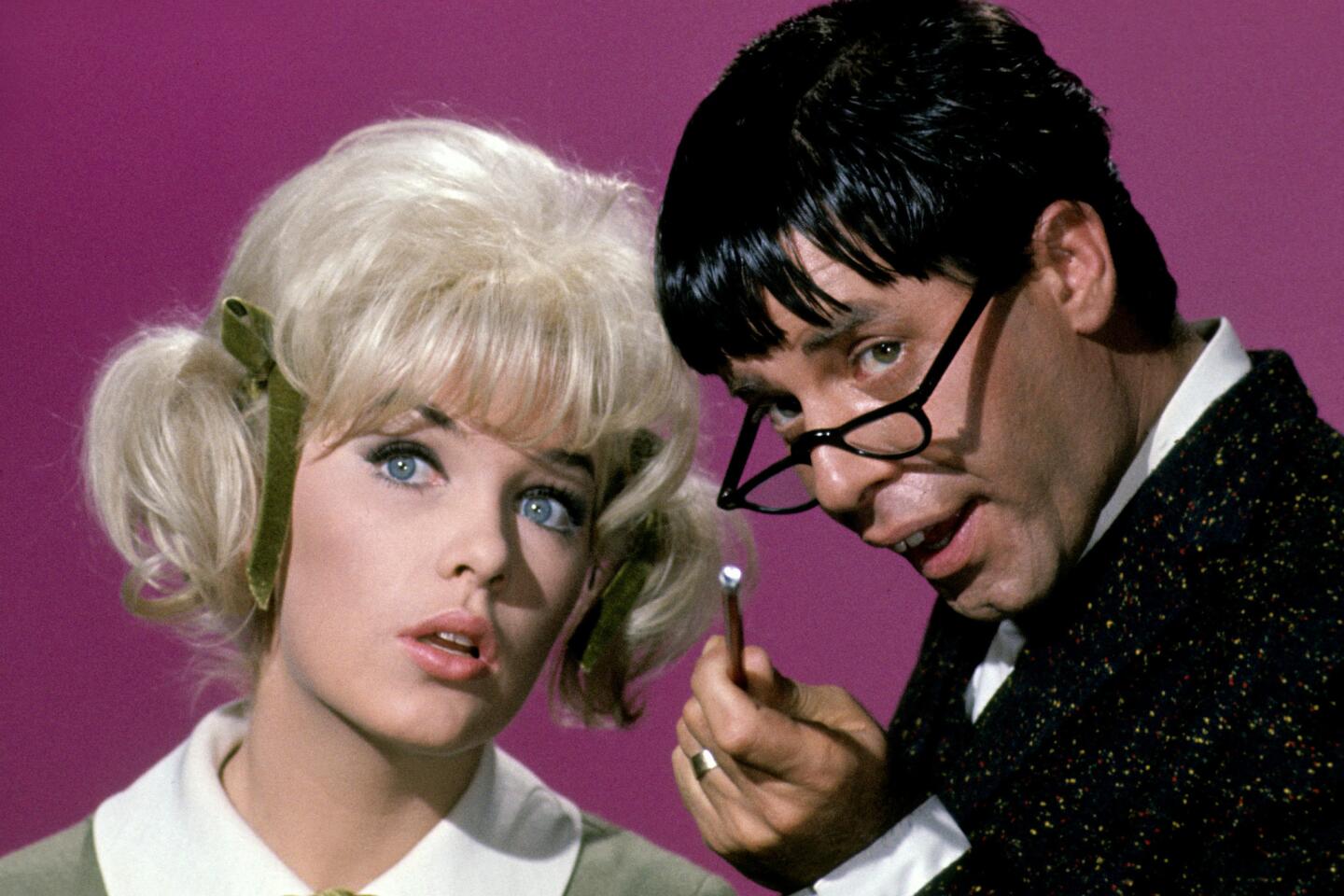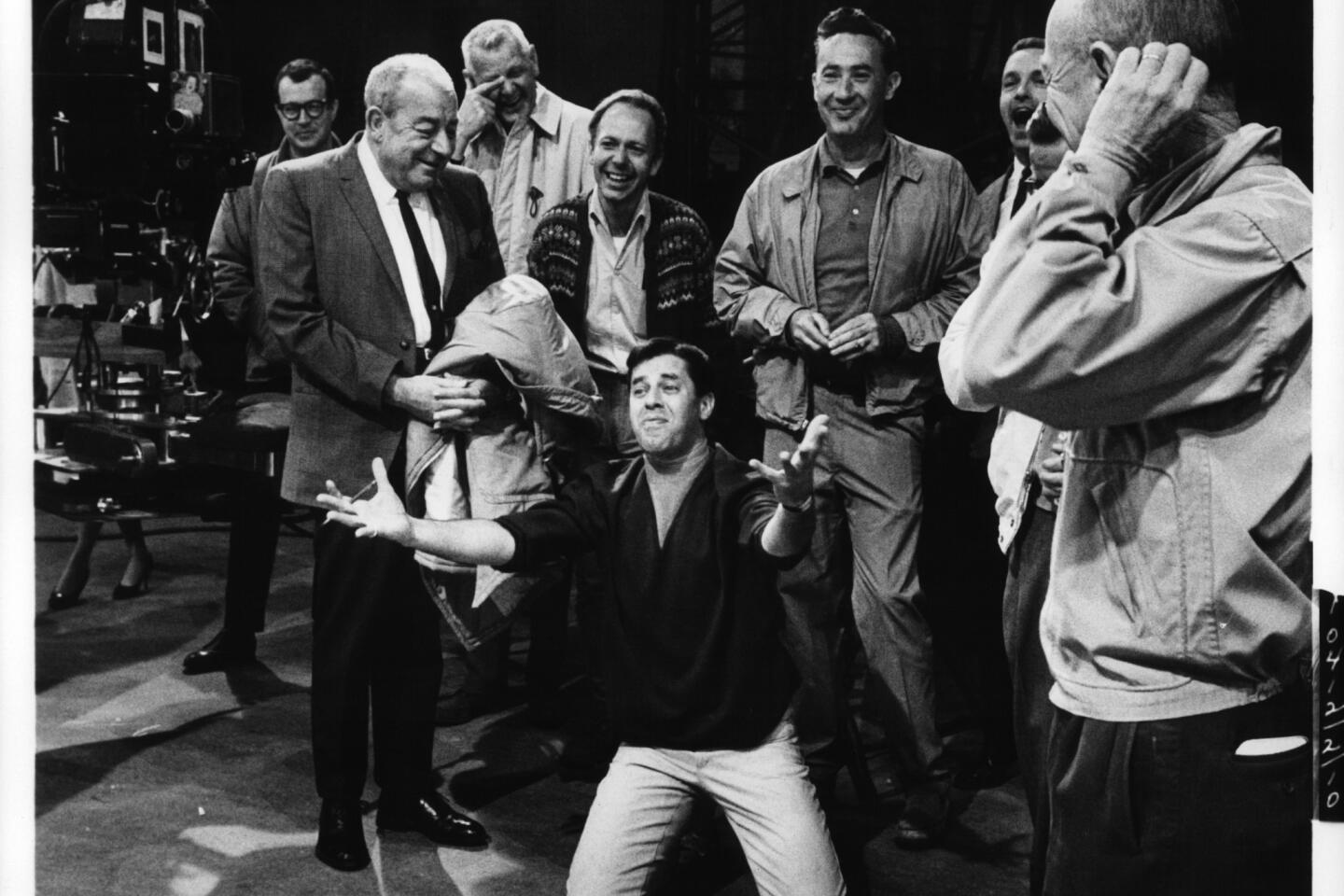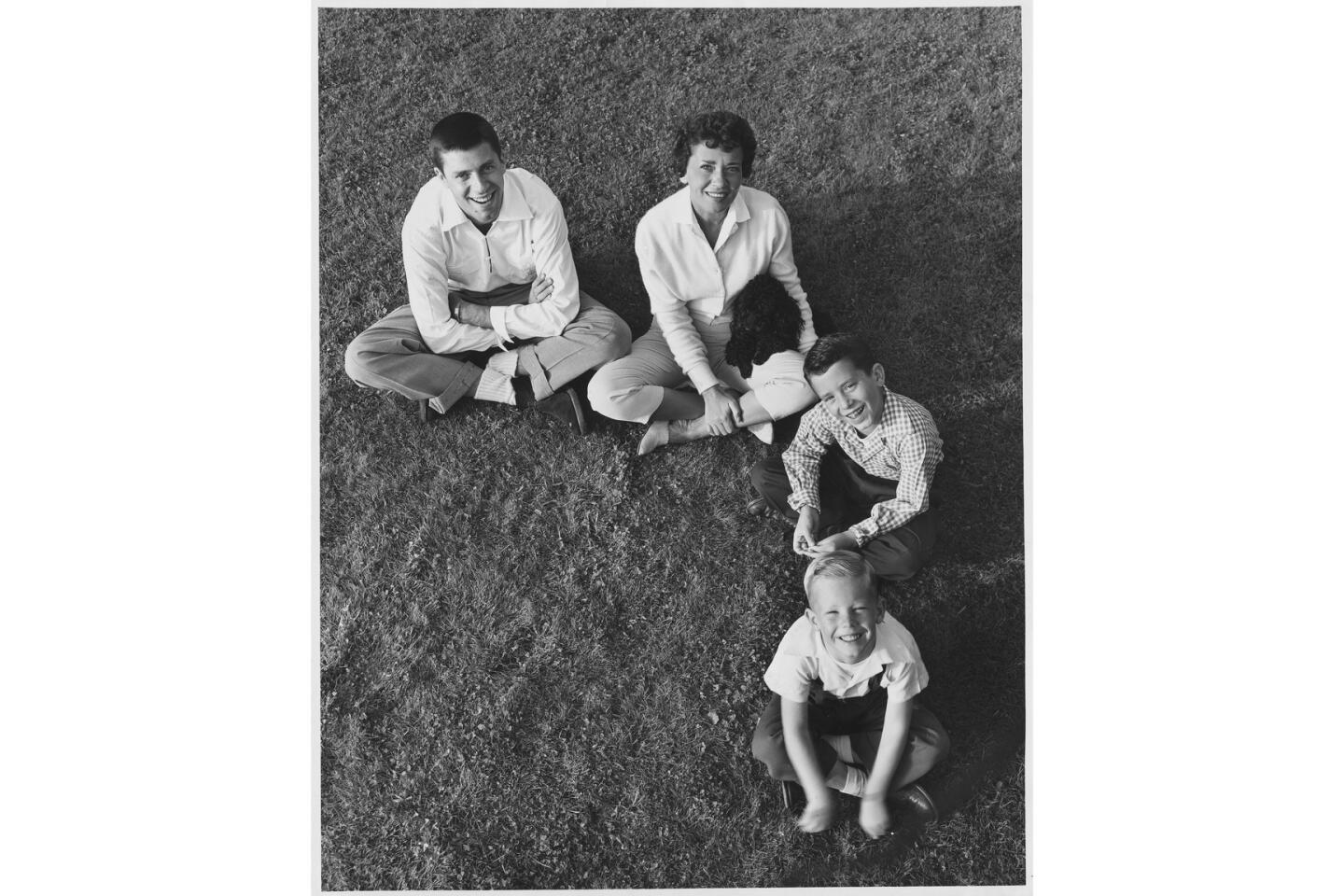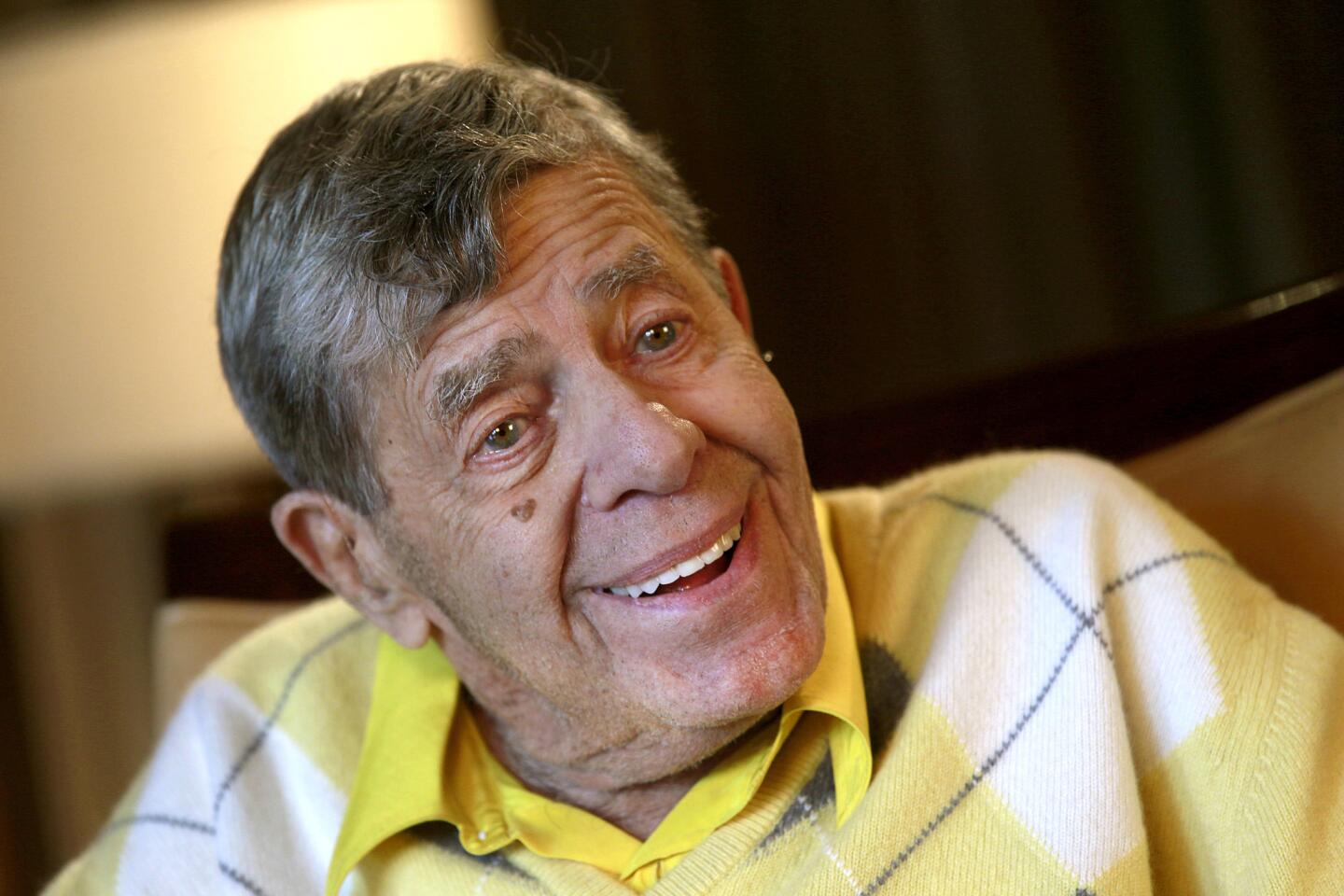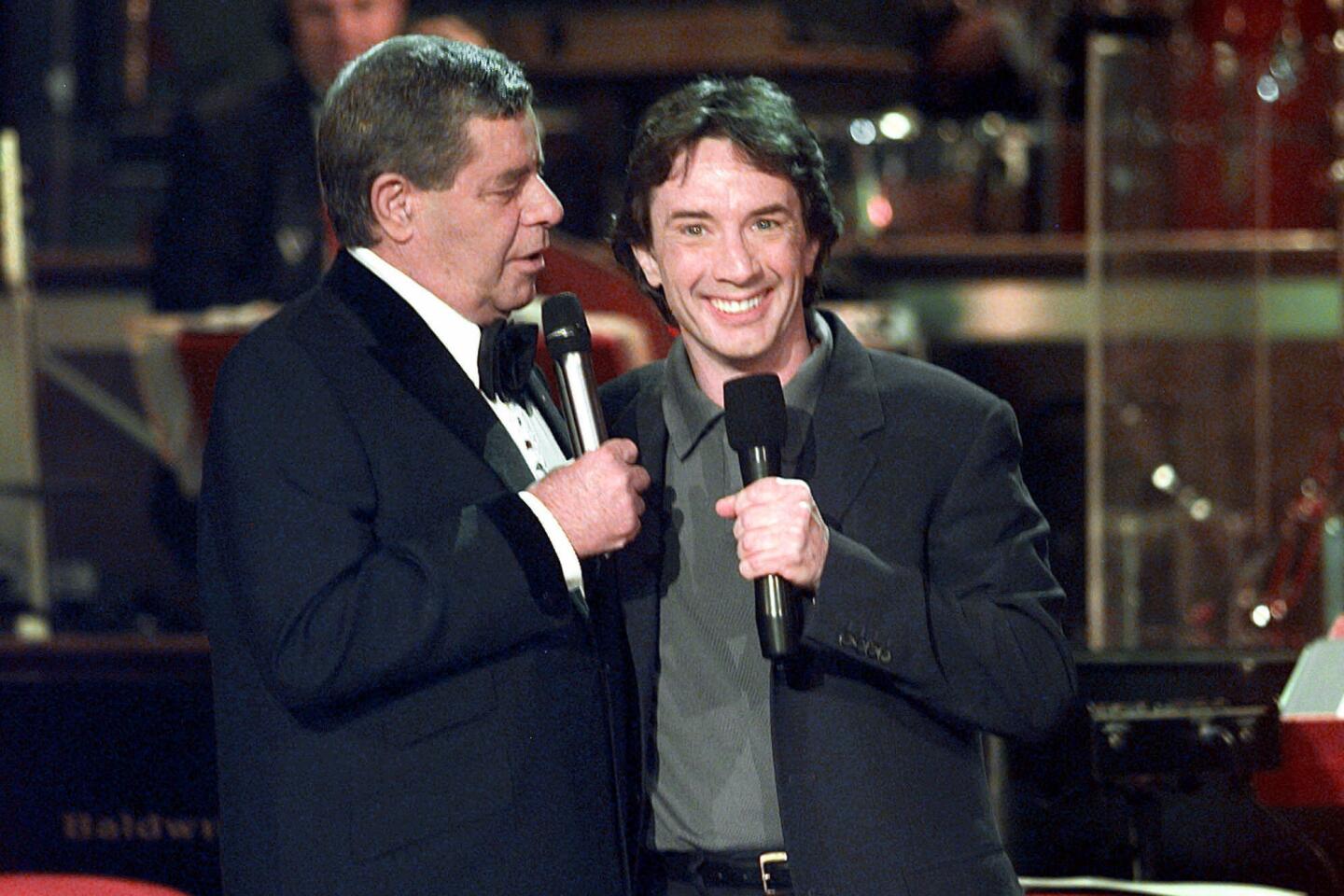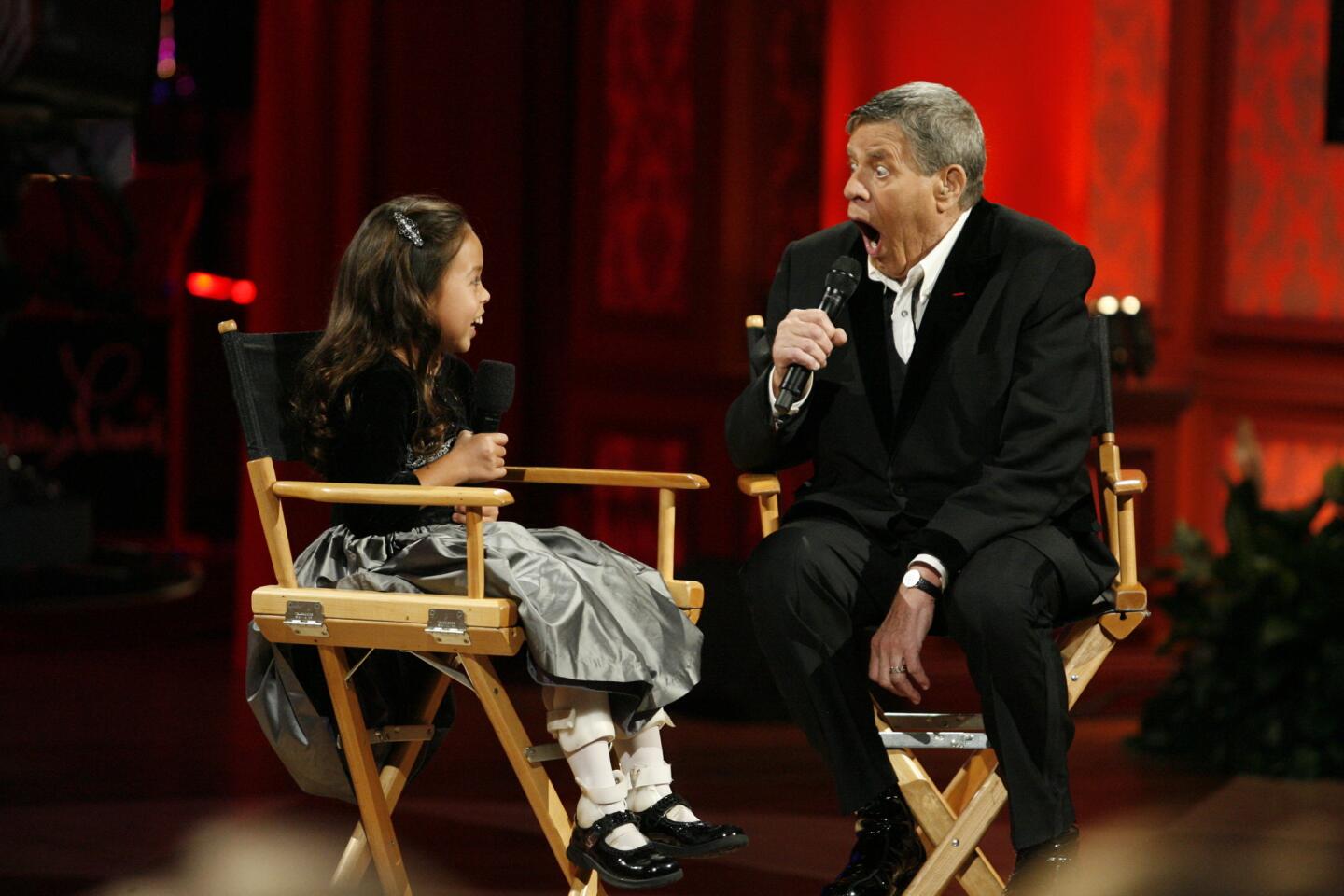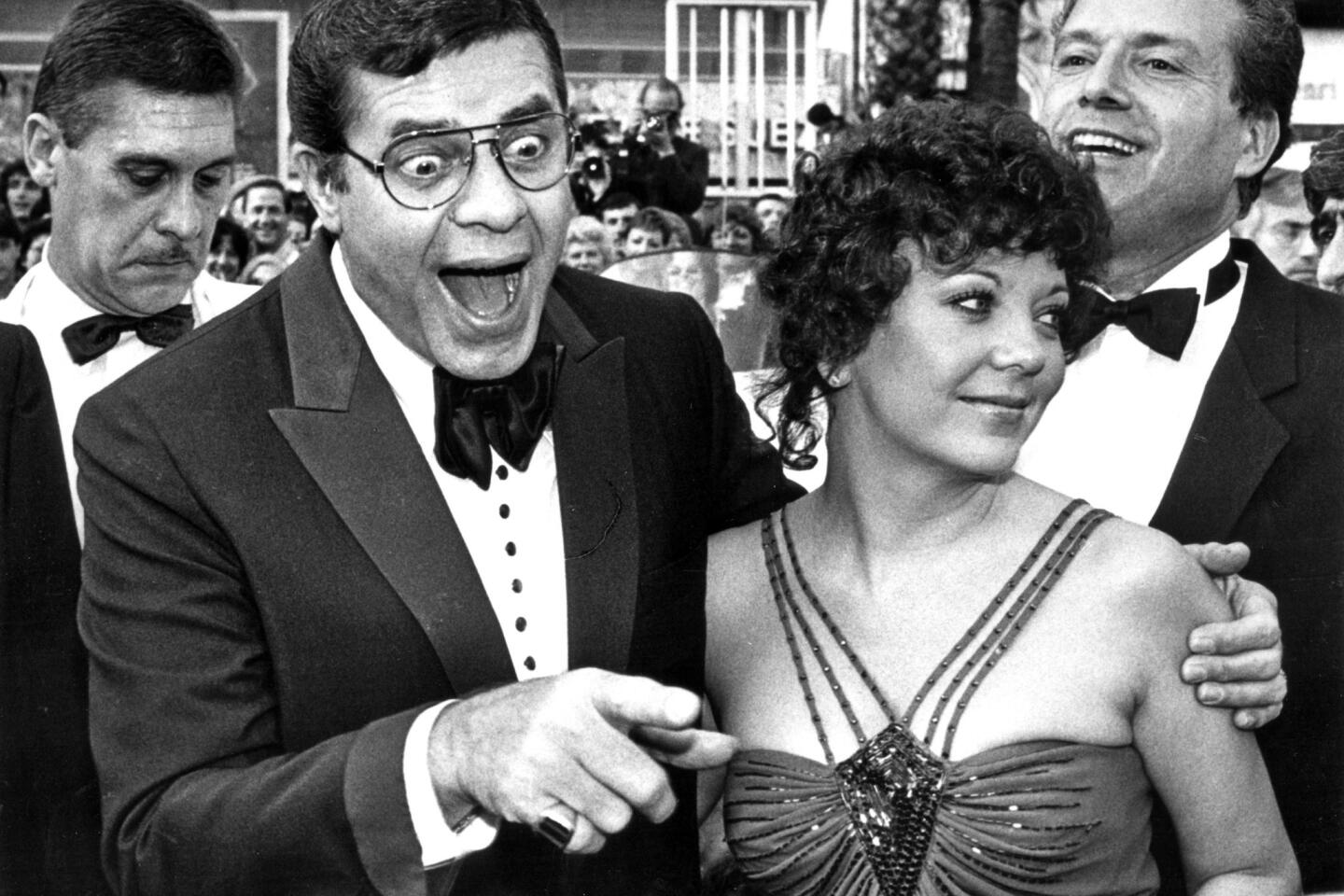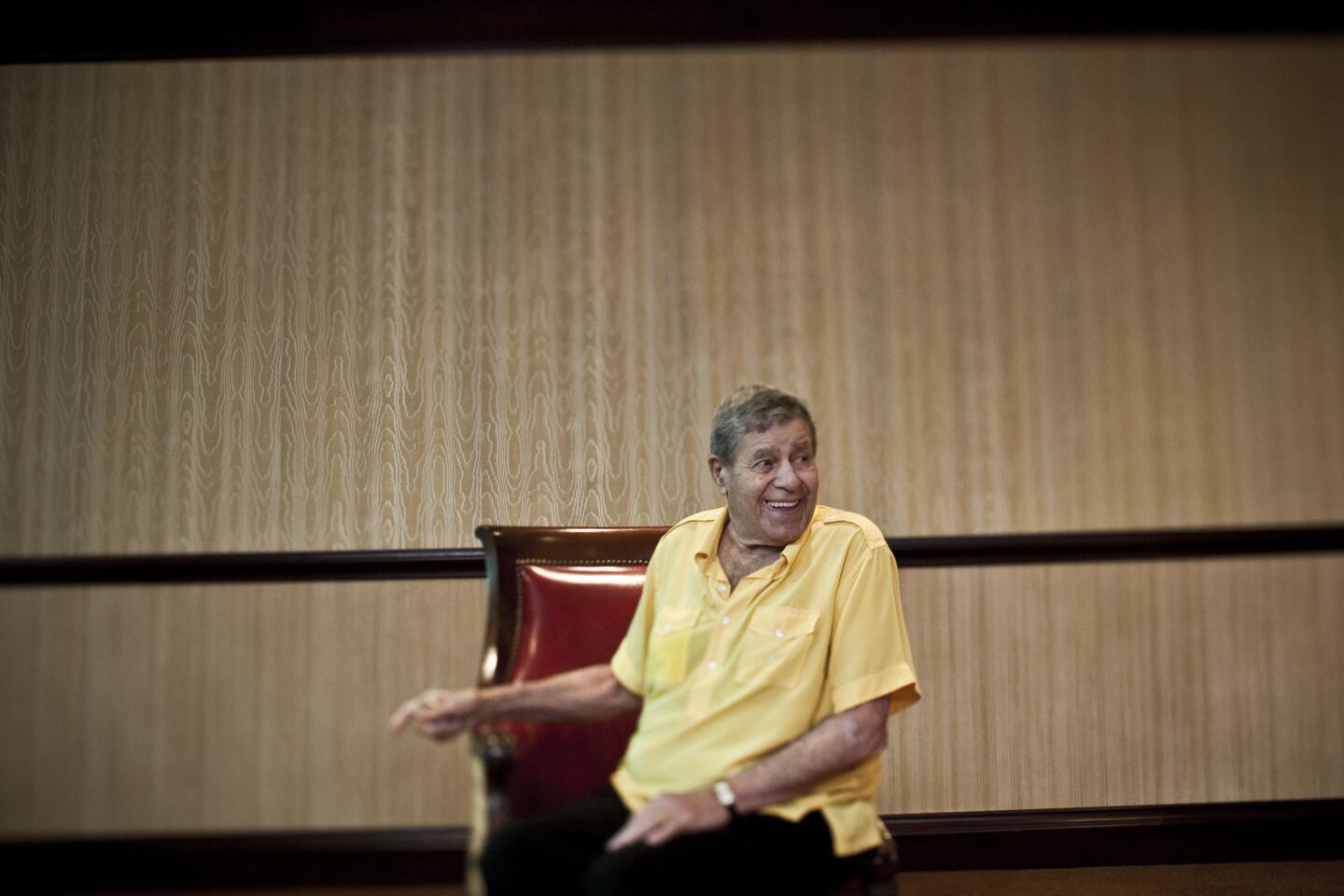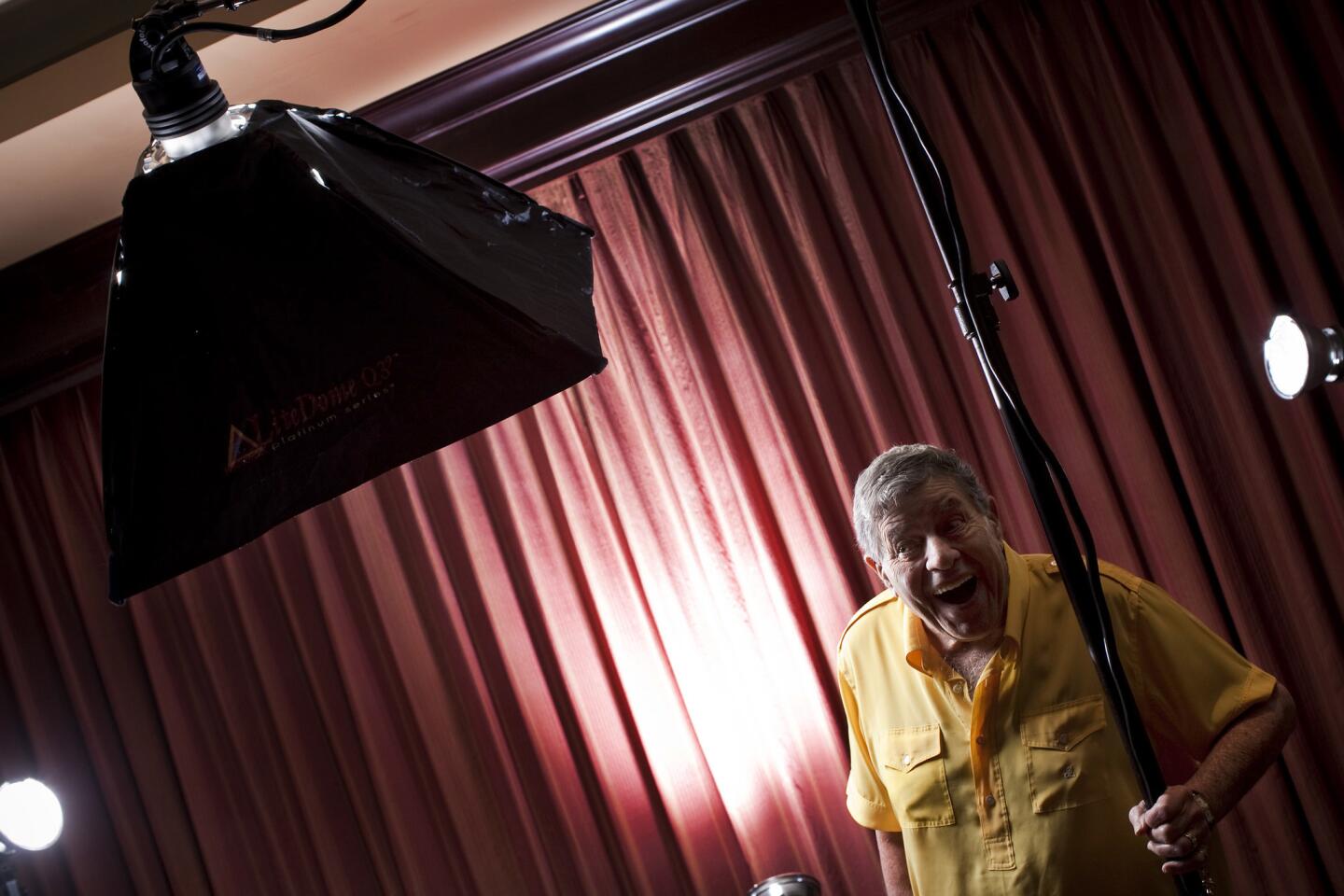An appreciation: Jerry Lewis helped write the auteur’s playbook
- Share via
To many younger consumers of pop culture, Jerry Lewis might seem like a cipher.
He’s a man praised nostalgically by older family members, considered the other guy (maybe) in relatively recent work such as the early ‘80s Martin Scorsese movie “The King of Comedy,” or made the punch line to a joke about French popularity. The interest in him would seem to have little to do with the present.
But the entertainer — who died Sunday at 91 in Las Vegas — was someone whose legacy lives on strongly today. even as such influence often goes unrecognized.
As testimonials have been highlighting since he died, Lewis had a long and shape-shifting career.
His comedy pairing with Dean Martin beginning in the 1940s resulted in more than a dozen movies and countless variety-TV appearances. He subsequently churned out scores of films as a solo artist, which he often wrote, directed, and occasionally even financed — “The Bellboy,” “The Delicate Delinquent,”The Family Jewels” and, of course, “The Nutty Professor.”
That last title was one of his signature roles — or several of his signature roles, as he played both sides of the film’s Jekyll-and-Hyde conceit.
Amid all that busy-ness was a hit musical album, his long-running stage show in Las Vegas and even a “Saturday Night Live” hosting gig after a late-career comeback, along with many other stints and guises too numerous to run down here.
Watching much of Lewis’ work in the modern era — and as a boy this writer did, thanks to a father who loved the vintage stuff — it can seem dusty and broad. Today’s comedy hasn’t necessarily gotten smarter but it has grown less physical, and the specter of bodies of differing types engaging in pratfalls (as he did with Martin particularly) is no longer considered cutting-edge.

In the 2013 drama “Max Rose,” Jerry Lewis played a retired jazz musician who, while mourning the death of his wife, becomes suspicious that she carried on a long-term affair with another man.
Still, much of what Lewis did was not only popular but novel, in part because he was subtly channeling something more personal in that work. Beneath the comedian’s absurdist, expressionist humor was a hint of melancholy. No one, after all, tries that hard to earn audience laughter without needing something deep and existential.
Yet it wasn’t in the realms of approach or style where Lewis set the table for the modern world. It was in the sheer range of his work — and how he oversaw it.
Lewis came along to a studio system in which the industry was regularly stratified between players and coaches. Actors getting behind the camera was far from common.
The studios tightly controlled the process and they wanted their people directing. Yet Lewis regularly led, often flouting the power structure to do so. The back story of “The Bellboy” is a jaw-dropper; to fund his directorial debut, Lewis reached into his own wallet and even shot the film at a Florida hotel where he could perform at night to pay the piper.
Control over material was smart business, and it was also good art. Neither the entrepreneur nor the auteur were common types among actors in mid-20th century Hollywood. But there Lewis was, at a time of strict studio control, doing both.
Lewis’ unwillingness to limit himself to one guise in his career was also ceiling-busting. His singing, his comedy, his stage shows and even later his very public charity appearances on the Muscular Dystrophy Assn. telethon all showcased a five-tools range.
Heck, DC Comics published a series that starred him — for nearly 20 years. Long before the modern era, Lewis was his own shared universe.
We of course see such permeability all the time now. Michael Moore is currently on Broadway, and pop and hip-hop stars move easily back and forth to the screen world. Today’s actors are often working in TV and film simultaneously. In comedy, one of the best analogues might be Kevin Hart, who sells out arenas at the same time as he’s churning out hit films.
A similar sense of authorship and control also pervades today in a way it didn’t before Lewis and a few other pioneers came along. We now have popular entertainers with a lot more say over the material they present. This is particularly true in comedy, where someone such as Louis C.K. writes, edits, directs and distributes his own material. Just last week, C.K. unveiled he has written, directed and starred in a stealth movie, titled “I Love You, Daddy,” and would premiere it at the Toronto International Film Festival. It was a move right out of the Jerry playbook, Louis taking from Lewis.
And that’s of course to say nothing of the myriad actors who buy up material and start production companies; a new one has probably sprung up since you began reading this piece.
Lewis wasn’t the first or only personality to take this kind of control, of course. But he did it with a certain kind of dogged abandon that set him apart from many of his peers. And he frequently did it with more success.
As the Lewis recollection pieces roll in, many will extol his rubber-limbed talents, while others will point to his prickly personality and deep insecurities. (A visit to a Cannes Film Festival news conference in 2013 confirmed that for this reporter.)
But also worth remembering is the impact he had on the intersection of art and commerce in America, and the piercingly modern lesson of how performers should not be limited to one type of role or allow others to define those roles for them. Beneath all of Lewis’ goofy falls and slapstick comedy lay an intensely serious mission.
ALSO:
Jerry Lewis, legendary comedian, has died at 91
From the Archives: Here’s what happens when Jerry Lewis isn’t so hostile in an interview
From the Archives: Jerry Lewis walks alone: The ritual of the Muscular Dystrophy Labor Day Telethon
From the Archives: In the kingdom of the clown: Jerry Lewis remasters his life’s work
Hey laaaaady! Jerry Lewis’ personal archive is acquired by the Library of Congress
More to Read
The biggest entertainment stories
Get our big stories about Hollywood, film, television, music, arts, culture and more right in your inbox as soon as they publish.
You may occasionally receive promotional content from the Los Angeles Times.
